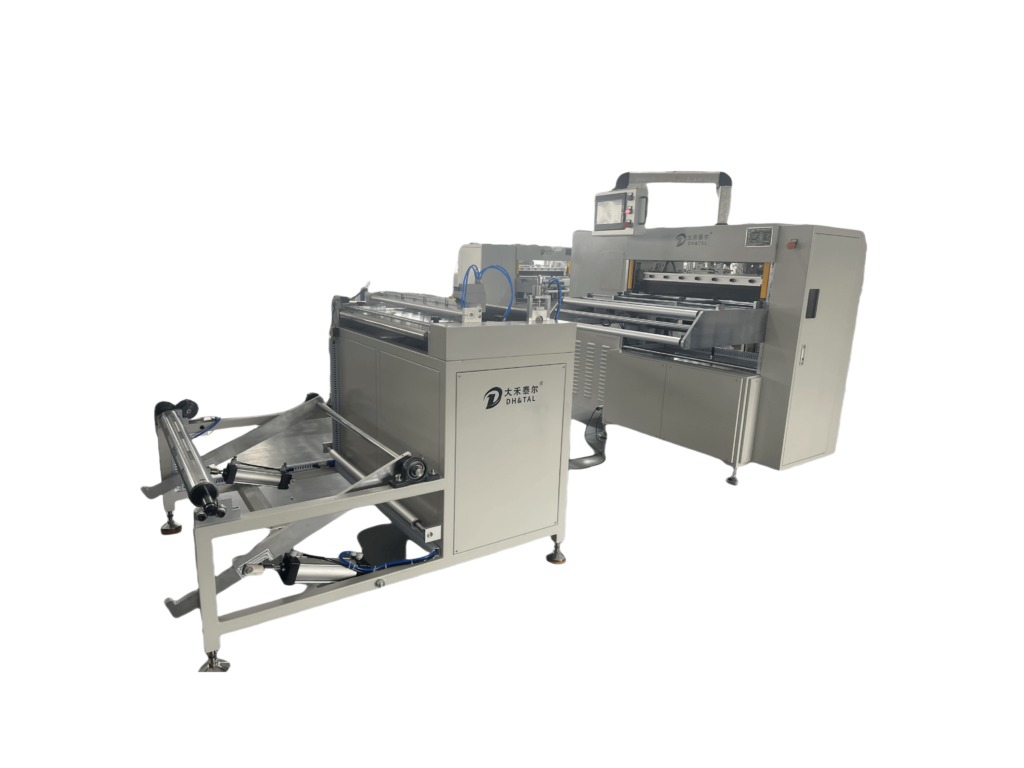When it comes to optimizing production efficiency, filter manufacturers rely heavily on the performance of their equipment. The choice of filter production equipment can determine how smoothly the operation is carried out, how cost-effective the process is, and more. For a top filter production equipment manufacturer, it is necessary to provide high-quality machines and customized solutions to improve operational efficiency. From faster production time to higher quality standards, the right equipment can significantly improve the performance of filter manufacturing facilities. In this article, we will explain how top filter production equipment manufacturers improve the efficiency of filter production, helping manufacturers meet market demands while maintaining quality.
Filter Production Equipment Manufacturer: Enhance Automation for Streamlined Operations
Automation is one of the critical ways filter production equipment manufacturers help users improve operational efficiency. By providing advanced filter production equipment, key processes such as feeding, filter folding, and sealing can be automated, which helps eliminate human errors, reduce labor costs, and speed up production time. In terms of production equipment, the machines designed by top filter production equipment manufacturers are highly adaptable to different production needs. Equipped with sensors and programmable controllers in automated equipment, precise operation can be ensured, reducing the chance of defects and improving the quality of filters. Improved production consistency can reduce rework and waste, ultimately increasing production and reducing operating costs. Additionally, automated systems enable continuous production, which increases the efficiency of the plant by minimizing downtime between batches.
Optimizing Energy Consumption in Production
Energy consumption is one of any filter production plant’s most significant operating costs. Top filter production equipment manufacturers understand the importance of energy efficiency in production and design their equipment to minimize power consumption. By using energy-efficient motors, servo drives, and heating elements, these manufacturers help reduce electricity costs without compromising the production line’s performance. One way to optimize energy consumption is to integrate servo drives into production equipment. These drives adjust the speed of the motor based on real-time production needs, meaning that the machine only uses the necessary amount of power at any given time. In addition, filter production equipment manufacturers also employ innovative energy management systems to monitor energy usage and gain insight into areas of energy waste. This data-driven approach allows manufacturers to make adjustments and further improve energy efficiency.
Filter Production Equipment Manufacturer: Strengthen Quality Control and Consistency
Another way filter production equipment manufacturers are improving efficiency is by applying advanced quality control systems directly to the production process. Maintaining consistent quality is critical in filter manufacturing, as even the slightest change in materials or production parameters can lead to filter defects, increased waste, and customer dissatisfaction. Filter production equipment manufacturers offer machines with real-time quality checks, automated visual inspection, material thickness measurement, and defect detection technologies.
With these built-in quality control systems, filter manufacturers can identify problems before they escalate, minimizing waste and ensuring that only the highest quality products make it to market. In addition, these advanced quality control measures help maintain consistency during large-scale production. Filters produced in different batches will exhibit consistent characteristics, such as size, shape, and performance.
Supports flexible, scalable production
As the filter market grows, filter manufacturers must adjust production capacity to meet changing demand. Top filter production equipment manufacturers design their machines with flexibility and scalability in mind. This enables manufacturers to adjust operations quickly without significant capital investments in new machines or production lines.
For example, modular filter production equipment designs allow manufacturers to expand their production capabilities by adding more machines or adapting existing ones to accommodate different filter types. Whether increasing the scale of production, changing the type of filters produced, or changing production speeds, scalable machines help manufacturers stay agile in a rapidly changing market. In addition, these systems are often easily reconfigurable so that manufacturers can switch between different filter products without extended downtime.
Leveraging Technology for Real-Time Data and Insights
Finally, incorporating real-time data and advanced analytics is an effective strategy for improving the efficiency of filter production systems. By leveraging data from all stages of the production process, top filter production equipment manufacturers can help manufacturers gain deeper insights into their operations. Real-time monitoring of machine performance, energy consumption, and production output allows manufacturers to make data-driven decisions that improve efficiency.
Their equipment often has built-in sensors and analytical tools that track performance metrics and issue alerts when performance thresholds are exceeded. For example, suppose a machine begins to operate inefficiently or deviates from set parameters. In that case, the system will automatically notify the operator, who can then take corrective actions to prevent significant problems. By leveraging this technology, manufacturers can continuously monitor their production lines, optimize workflows, and improve decision-making. The data that filter manufacturers can collect from these systems can also help identify trends in equipment performance, material usage, and labor costs.
Achieving Efficiency for Efficient Filter Manufacturing
Top filter production equipment manufacturers can significantly improve filter manufacturing process efficiency. From increasing automation and optimizing energy consumption to simplifying maintenance and supporting scalable production, the right equipment can help manufacturers significantly improve productivity, cost-effectiveness, and product quality. By integrating advanced technology, real-time data, and precision manufacturing engineering, these manufacturers provide the tools needed to meet the growing demands of the filter market while maintaining high standards.





